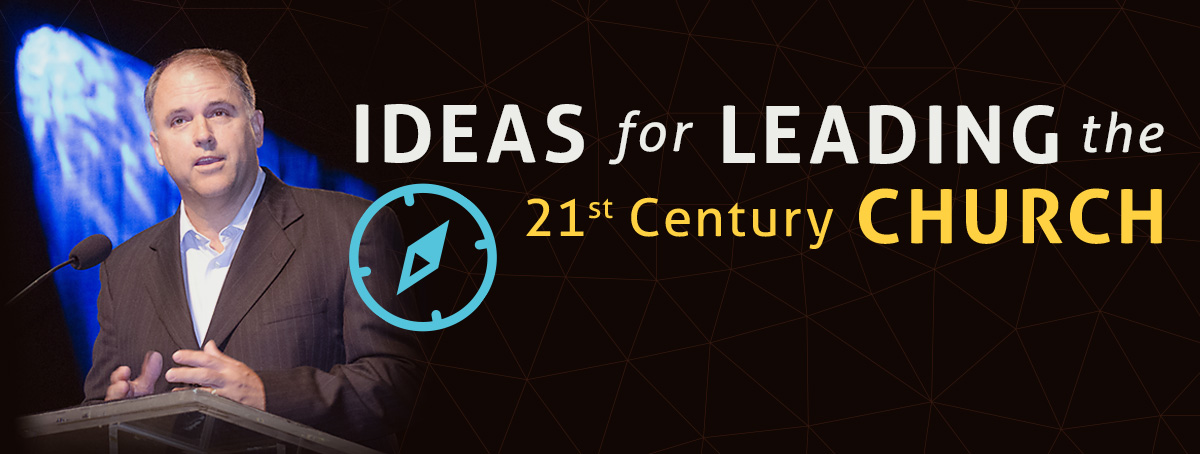 In an age of modern connectivity technology, the national SBC still uses a single host location to gather each June to conduct the business and hear the will of 47,272 churches spread across North America. With participation, cooperation and support at low levels and a great need for human and financial resources for missions, has not the time come to develop a workable system to engage and hear the voices our faithful cooperative program investing churches many of which have never been to or cast a vote regarding their Convention? Can we unite in support of engaging more churches, strengthening our SBC mission effort, and providing a castable ballot to every church which wants to participate, particularly the underserved small and mid-size churches of the SBC?
In an age of modern connectivity technology, the national SBC still uses a single host location to gather each June to conduct the business and hear the will of 47,272 churches spread across North America. With participation, cooperation and support at low levels and a great need for human and financial resources for missions, has not the time come to develop a workable system to engage and hear the voices our faithful cooperative program investing churches many of which have never been to or cast a vote regarding their Convention? Can we unite in support of engaging more churches, strengthening our SBC mission effort, and providing a castable ballot to every church which wants to participate, particularly the underserved small and mid-size churches of the SBC?
The Way of the World’s Fair?
Do you remember the famous World Fairs and the many buildings, gadgets and doohickeys they brought the world? 1893 Chicago – Edison, Electricity and Ferris Wheel, 1889 Paris – Eiffel Tower, 1962 Seattle – Space Needle, 1967 Montreal – the Biosphere. The World’s Fair was once among the elite events that brought the members of the world together. Yet, increasing opportunities, costs, travel, new delivery options along with emerging technologies all impacted both the World’s Fair and the SBC Annual Meeting. The World’s Fair and the SBC Annual meeting share common challenges and striking parallels. Countries, companies and denominations have new options for relaying their advances to the world and creating experiences and communities among its followers. Countries are taking new approaches.
Subsequently, has the time come for the SBC to take appropriate new approaches in the way we engage churches, conduct business and communicate our historic cooperative values? Should we rethink, be creative and design workable opportunities so that every church can engage with the SBC and vote, locally? I believe so.
Voices and Voting: Only 5%
Voices and voting matters. “Voting is an important part of any democratic society. It’s the main way to be included in your country’s government and make sure it best represents the people. The more people who vote, the more accurately our laws and lawmakers will reflect who we are and what we want.” (How to Vote in Washington State)
The SBC benefits in numerous ways when its churches and individuals are informed and engaged with Southern Baptist cooperative efforts. Every cooperating and contributing SBC church has the right to participate through voting on matters decided at the SBC every June. However, during each of the last 5 years, less than 5% of SBC churches annually (2,230 in 2017) register a messenger for the Annual SBC. Remarkably, the average number of registered messengers over the last five years is only 4.9 messengers per Association. We can and must do better at engaging the owners of the SBC, if we value our cooperative mission efforts.
Framework Proposal to Increase Voices & Voting…
Empower the SBC Executive Committee to design a workable plan, guidelines, and necessary rules and by-laws changes to allow for the registration of messengers and real-time voting in at least one location in every Association.
Particulars to Bringing the SBC Home
- Southern Baptists still maintain a host city model, while simultaneously dramatically increasing the voices and voters by offering more gathering places and voting sites for Messengers through local Associations. Maintain current relevant requirements regarding the number of Messengers.
- Insure live streaming, local credentialing of SBC messengers and the establishment of voting procedures in one or more locations per Association in coordination with the Associational Executive Director and the leadership team regarding the number and places.
- State Conventions provide one or more locations for Messengers to gather and vote from at-large churches or in places where Associations are not able to do so.
- Verbal discussions on motions could initially or permanently be limited to the one host city for the Annual SBC meeting
- By motion of the SBC in 2018 in Dallas, authorize the Executive Committee to select a Task Force to discern the issues, explore options and also present a workable plan to be voted on by the messengers of the SBC in Birmingham in 2019. Request that the Executive Committee propose the necessary by-law changes to implement their proposed plan.
- Executive Committee to study and plan during 2018-2019 and present a motion to the SBC messengers in Birmingham in June 2019. Implement the plan for the SBC in Orlando in 2020. Make necessary adjustments in Orlando for full implementation for 2021 in Anaheim, CA.
I would expect there to be many seen and unseen benefits from engaging more SBC churches, pastors and members at the local level and providing them access to the SBC and voting privileges. The following is an initial list of several expected benefits.
Benefits to Bringing the SBC Home
- Makes the national annual meeting truly national regardless of the national host location, instead of it being weighted regionally based on location.
- Reduces costs in time and money to participate in the SBC at the national level. The average church does not have the funds to send messengers to the SBC.
- Increases opportunities and ease of participation and voting for pastors and churches, particularly the small and mid-size churches which make up 96% of the SBC churches
- Allows voting matters to be decided by more people who represent our wide diversity of churches instead of the relatively high percentage of voters from large churches and/or those serving in denomination roles.
Additional Anticipated Benefits to Bringing the SBC Home
- Increased engagement will have a positive spillover impact on financial support and participation in other cooperative efforts nationally, regionally, and locally. (Average CP giving was 10.7% in 1982, but reduced in half to 5.1% in 2017)
- Provides an additional opportunity each year for Associations to highlight the ministry taking place in their local Associations and to enhance relationships and mission partnerships among the churches and leaders.
- Tangibly demonstrates the value of cooperation and the Cooperative Program, and the unique role and contribution of the various parts of the SBC ecosystem to churches of all sizes, whether established churches or church plants new to the SBC family. Provides a local opportunity to link the objectives from the local Association, to the State Conventions and to national entities.
- Increase number of informed SBC members, increase cooperative spirit in the churches and leaders and increase the likelihood of support for cooperative mission engagement.
Conclusion
This proposal will not make churches participate, invest, or partner, however, it rightly provides an accessible place and a voice via voting to virtually every church in the SBC that wants to actively participate in the SBC family. Increasing engagement opportunities will not resolve all our challenges, but it does allow for greater participation. While the SBC may have larger issues at hand, this seems to be a win-win opportunity that we can all get behind.
Former Speaker of the US House of Representatives Tip O’Neill famously said, “all politics are local.” His statement assumes local people have access to vote and the representatives are accountable to the voters. It is time to make all SBC politics local (voting, mission strategy and tactics, decision making). It is time to bring the SBC back home.
